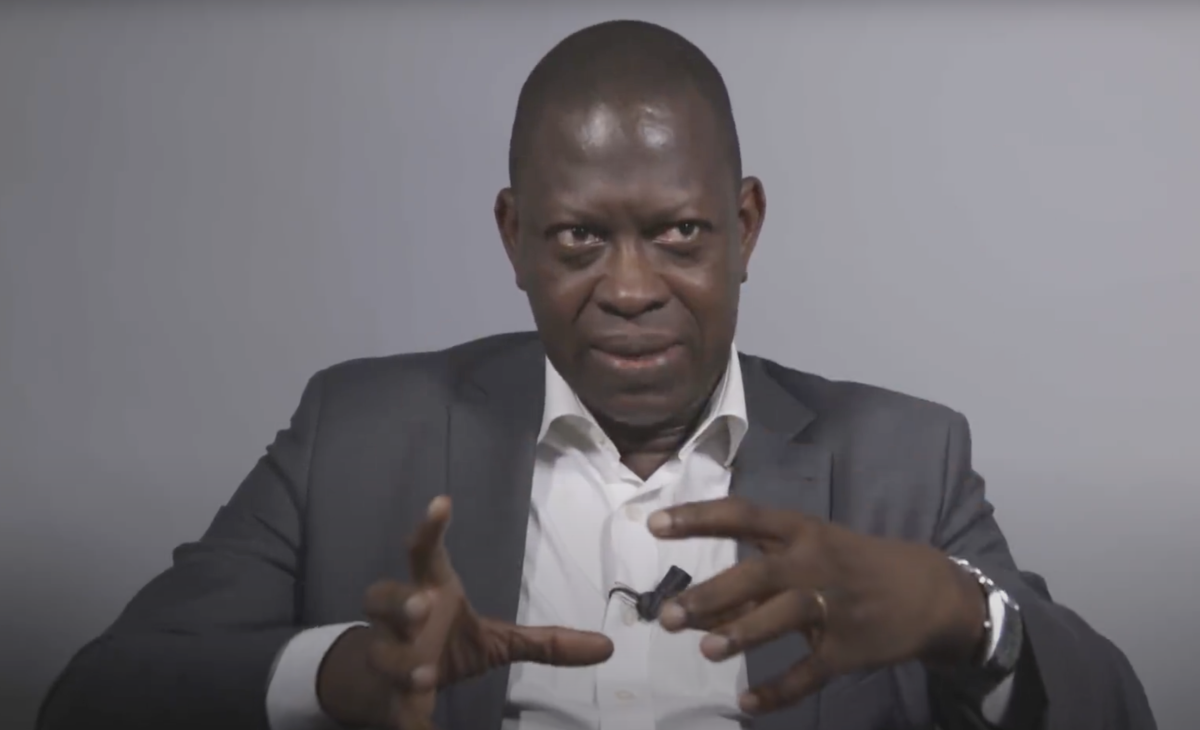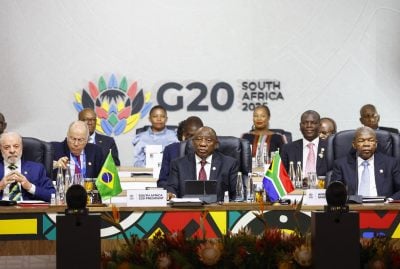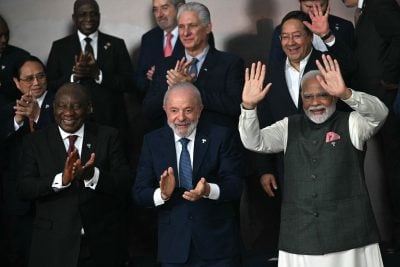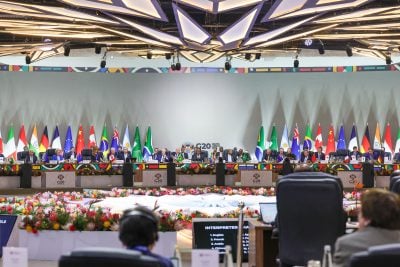Kako Nubupko has stepped down from his role as commissioner of the West African Economic and Monetary Union (UEMOA) to return to academic life.
The former Togolese minister for forward planning and public policy evaluation talks to Hichem Ben Yaïche about his new book Africa and the rest of the world: From dependence to sovereignty and his hopes for a future that prioritises agriculture, investment and good governance.
How would you sum up your time as Commissioner of the West African Economic and Monetary Union, which you have just left?
I’m returning to university life after spending three and a half very exciting years at the Commission, in charge of agriculture, water resources and the environment. Because to feed ourselves, we need to produce and consume agricultural goods. For the planet to survive, we need to protect natural ecosystems. So, the environment – water and air – is essential to life.
I have spent two periods at the Commission. The first was between 2009 and 2012, when I was head of economic analysis and research. We had already worked on the UEMOA-2020 Vision in key areas. I came back to implement some of this groundwork. I was already aware of the fundamental issues, in particular what I had set in motion, which will continue, notably the review of the Commission’s agricultural policy, a strategic subject in the context of the return of the blocs.
What levers do we need to rely on to make the ‘African dream’ a reality?
There are five: labour, capital, technical progress, the quality of governance and the quality of institutions.
According to the World Bank’s latest Business Ready report, published in October, Rwanda is Africa’s leading reformer. Togo ranks first in West Africa and fifth on the continent in economic terms. On the other hand, the record is much more mixed according to the UN’s Sustainable Development Goals. There are countries that are making much greater efforts.
These include economic success, but also the redistribution of wealth so that not too many people are left by the wayside. It’s from this point of view that I think there is currently a form of standardisation of issues at global level.
In this respect, the neo-liberal globalisation system is increasingly creating exclusion. In Britain, we saw it with Brexit, in the United States, we saw it under Donald Trump, the phenomenon of poor whites, and we are seeing it in Africa.
For a long time, the welfare state compensated for these exclusions in the rich world, but increasingly we are seeing a system of ‘unravelling’ the welfare state in the North. Since Africa has never had a welfare state, now is the time for it to build systems that will enable it to cope with the shocks that affect its society.
What areas should be prioritised to achieve prosperity?
I propose three: the first is agriculture. We have the land and the youth. There’s no reason why we can’t develop agriculture.
The second project is a Marshal Plan for Africa. Massive investment in transition (is needed), particularly ecological transition.
And the third is to ensure that the triptych of state, territory and society is consistent. Our governance needs to be more inclusive and put accountability at its heart. We need to explain to society what we are doing with public money, where we are taking them, and let society know that there are not those who know and those who must follow. We need to co-construct in a symmetrical way the paths to what I call shared prosperity. I would like to quote Professor Joseph Ki-Zerbo at the beginning of my book: ‘If we lie down, we are dead’. We need to co-construct, in a symmetrical way, the paths to what I call shared prosperity.
How will these issues bring about the success or failure of Africa?
The first is agriculture, and particularly the agro-ecological intensification of production systems. The Russia-Ukraine crisis has shown us that governments cannot afford to subsidise chemical fertilisers when the price of a tonne of potash has risen fourfold in six months With 500 million hectares of arable land and a billion young people, we can see that by putting them to work through agriculture, we can solve many of the problems linked to food security, job creation and reducing the import bill. Just look at Senegal: the country imports a huge amount of rice even though it grows it in Casamance!
The second theme is major investment in ecological transition. Africa is the planet’s second ‘lung’, with the Congo Basin forest. We cannot allow this forest to deteriorate. International efforts must be mobilised to finance the ecological transition in Africa. This is not charity, but investments in environmental solidarity.
Finally, the third theme is governance. The crises are teaching us that we have reached the end of the independence consensus, i.e. the principle of the intangibility of borders resulting from colonisation. Today, the response to the jihadist movement is territorial reconfiguration. This will call for a new vision and new governance, and a more endogenous way of constructing responses. We can all see that formal democracies are collapsing everywhere.
Africa is facing internal problems such as jihadism and trafficking. How can they be tackled without major resources?
Political scientist Bertrand Badie talks of an ‘imported state ’. Let’s not forget that our states are barely 75 years old!
As a result, you have states that are going to incur enormous transaction costs because they contain many populations that did not choose to be together. This absorbs time and energy and, faced with the threat of jihadism, these small nation states – even when they are large in surface area – have only a small monetary space.
They do not have the means to deal with these threats. The triptych of state, territory and society needs to be reconfigured. Hence the question of regional integration by the driving forces, the military, civilians and leaders. This is the priority.
How can your ideas be made operational?
It’s a cultural battle. It’s no mean feat to explain to a billion young Africans that they have the capacity to transform their world. To do this, the first element of success is confidence. We must never forget that the greatest achievement of colonisation was to ‘inferiorise’ the African.
Basically, the complex that we still have is to think that we are not capable of fully assuming our sovereignty in all areas. I’ve gone to great lengths to explain the problems of the CFA currency, to show that we can escape from voluntary servitude by remembering that there was a pre-colonial monetary history.
It’s a daily battle. You always need to have three things in mind when waging a cultural battle of this kind. The vision, the methods of governance and the capacity to set up monitoring and evaluation systems. These are essential. Things happen through processes. They are not static.
We see the strong demand for emancipation from Africa’s youth. What they are asking us, as leaders, is to preserve the common good, and to have the general interest in mind. That’s where the problem lies. Because we don’t always have the capacity to explain the reforms. The imperative is to have leaders who aim for the general interest and the common good. The other imperative is to have leaders who teach the reforms to explain to young people what is happening.
That’s why, in the book, I talk about a ‘pan-Africanism of withdrawal’. Challenging the established order can be the first phase. We need to propose and co-construct with others. Africa is not isolated. It is in interdependence – built and assumed – that it will find its way. And not in the dependence illustrated by the primary integration of African economies into international trade.
Want to continue reading? Subscribe today.
You've read all your free articles for this month! Subscribe now to enjoy full access to our content.
Digital Monthly
£8.00 / month
Receive full unlimited access to our articles, opinions, podcasts and more.
Digital Yearly
£70.00 / year
Our best value offer - save £26 and gain access to all of our digital content for an entire year!
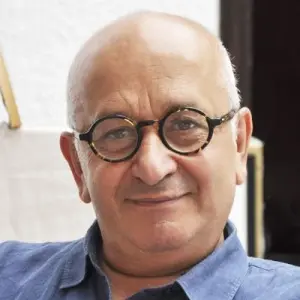
 Sign in with Google
Sign in with Google 